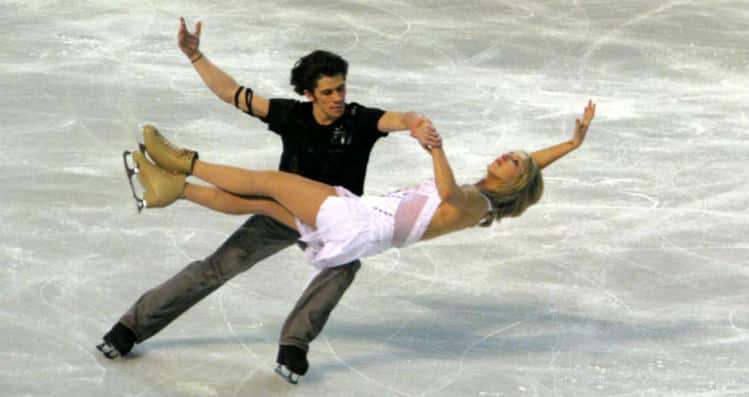
The U.S. Center for SafeSport has announced its damning evaluation of sexual misconduct allegations in the sport of figure skating, saying in a Monday press release that it has discovered “a culture in figure skating that allowed grooming and abuse to go unchecked for too long.” The Center has been working to investigate allegations of sexual misconduct against late national pairs figure skating champion John Coughlin. Now, it appears that misconduct goes much further than Coughlin.
Learn more from our lawyers: https://abuseguardian.com/olympic-committee-sexual-abuse-lawsuit/
In a statement to USA Today, SafeSport representatives said, “the issues in this sport are similar to those the Center has seen in many others and cut across a wide population.” America’s Olympic sporting community is currently struggling to face sexual abuse scandals in USA Gymnastics and USA Swimming. “This cannot be allowed to continue. The Center addresses these cultural issues every day through training and education and by, on a case-by-case basis, holding those who violate the [SafeSport] Code accountable.”
In regards to the culture of sexual abuse noted in USA Figure Skating, SafeSport spokesman Dan Hill said in a phone interview that the Center became aware of the problems “with the reports we have been seeing and the anecdotal stories and evidence we have been receiving. Without getting into the specifics of any particular person, we have had people want to explain how the sport works, with concerns about how young women in particular are treated, especially in pairs skating.”
Continue Reading: The Safe Sport Act Of 2018: Protecting Young Athletes From Sexual Abuse
John Coughlin, at the time 33, took his own life on January 18, 2019, only one day after he received an interim suspension from SafeSport. At the time of his death, Coughlin was facing three separate allegations of sexual misconduct, including two of them leveled by minors.
Coughlin became a well-known ambassador for figure skating. The 2012 US National Champion in pairs skating, Coughlin made his presence known at skating competitions and skating rinks around the country, working as a coach and TV commenter. He was also in the process of rising through the ranks of US Figure Skating and the International Skating Union, the sport’s global federation.
That all came to a crashing halt on January 18, 2019, when Coughlin took his own life at his family home in Kansas City. In the days following his death, reports emerged that Coughlin had been accused of sexual misconduct by at least 3 people, including two minors. The reports were filed with the U.S. Center for SafeSport, leading to his suspension from the sport.
Days before his death, Coughlin addressed the allegations obliquely in an email to USA Today, which provided most of the breaking reports on his alleged misconduct. In his email, Coughlin called the allegations against him “unfounded,” then lashed out at a SafeSport policy he said prevented him from speaking further. “While I wish I could speak freely about the unfounded allegations levied against me, the SafeSport rules prevent me from doing so since the case remains pending.”
Discovering further details about the allegations has been difficult. In February 2019, the US Center for SafeSport closed the investigation into Coughlin’s alleged misconduct, saying that it could not “advance an investigation when no potential threat exists,” citing the figure skater’s death.
In recent weeks, US Figure Skating has repeatedly asked SafeSport to complete its investigation, stating, “the allegations and Coughlin’s death have left his family, those who reported the allegations, many in the figure skating community and survivors of abuse searching for answers.”
Despite these calls for further investigation, SafeSport continues to maintain that it cannot investigate into someone who has died. According to a recent statement:
“the Center has made its position regarding the Coughlin matter abundantly clear to USFS and the parties involved. The Center’s actions are consistent with the SafeSport code and its mission. The Center cannot advance an investigation when the named respondent no longer presents a potential threat.” The Center continued to explain why: “the most severe sanction the Center can impose is permanent ineligibility to participate in sport.
In this instance, the respondent’s eligibility to participate in sport is no longer at issue. Furthermore, the Center is dedicated to providing a fundamentally fair adjudicatory process. Indeed, fairness dictates that the Center not complete an investigation when it is impossible for the respondent to provide testimony regarding events about which only he would have knowledge. While the Center can proceed with an investigation where a respondent voluntarily elects not to participate in the process, it cannot and would not complete an investigation when a respondent is deceased.”
We will update this post with details on the story when they become available.



